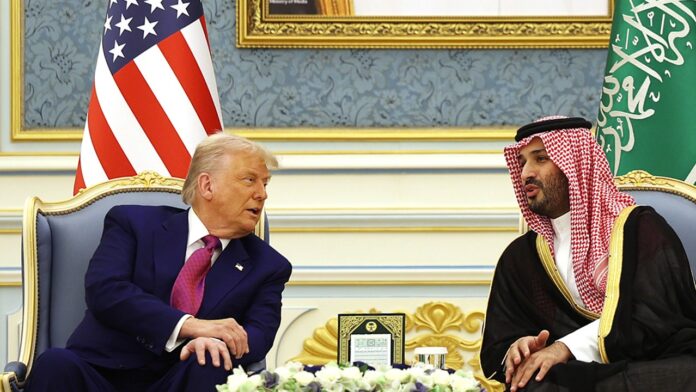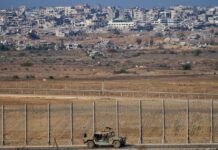
NEWYou can now listen to Fox News articles!
Saudi Crown Prince Mohammed bin Salman arrives in Washington on Tuesday for his first White House visit in seven years, marking a pivotal moment to rebuild U.S.-Saudi ties and strengthen a partnership that remains central to American security and energy interests.
Ahead of the meeting, a group of 9/11 survivors, first responders, and victims’ families urged President Donald Trump to hold Saudi Arabia accountable for its alleged role in the 2001 attacks. This follows a United States federal district court judge, George B. Daniels, ruling against Saudi Arabia’s efforts to dismiss a lawsuit brought against it by the families of 9/11 victims, which alleged the country was party to the attacks.
The visit comes as Trump has publicly confirmed the United States will sell F-35 fighter jets to Saudi Arabia, telling reporters on Monday, “I will say that we will be doing that. We’ll be selling the F-35s,” a move that immediately places Israel’s qualitative military edge and the region’s future defense architecture at the center of the conversation.
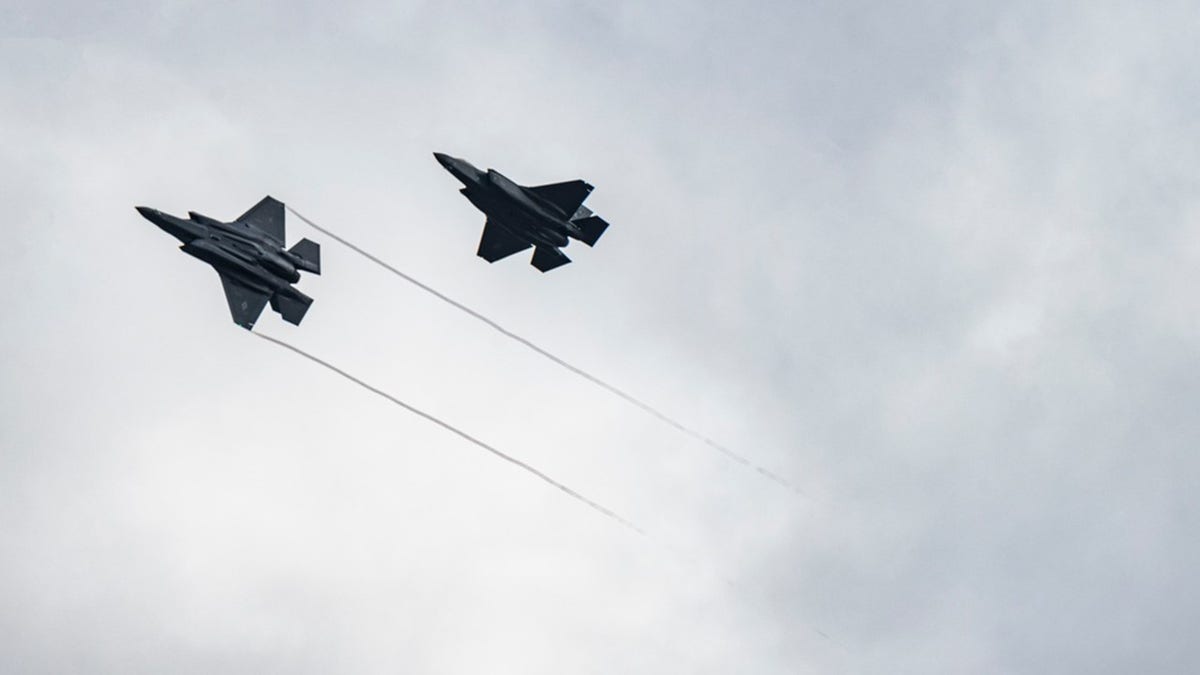
On Monday, President Donald Trump confirmed the U.S. will sell F-35s to Saudi Arabia. (U.S. Air Force photo by Senior Airman Ali Stewart)
White House spokesperson Anna Kelly told Fox News Digital that “President Trump looks forward to welcoming Crown Prince Mohammed bin Salman Al Saud to the White House, where the two leaders will participate in an official working visit. Thanks to our Dealmaker-in-Chief, the United States secured $600 billion in historic investments during the President’s visit to Saudi Arabia earlier this year, and Americans can expect more good deals for our country spanning technology, manufacturing, critical minerals, defense, and more.”
A senior administration official, speaking on background, told Fox News Digital that the expected agreements will include a multi-billion dollar investment in America’s AI infrastructure, enhanced cooperation on civil nuclear energy, and defense sales aimed at strengthening defense cooperation between the two countries.
The official added that the visit will also focus on the fulfillment of the Saudis’ $600 billion investment pledge through dozens of targeted investments across key U.S. sectors.
In Saudi Arabia, the visit is being seen as historic. Aziz Alghashian, a lecturer in international relations at Naif Arab University in Riyadh, said there is “a lot of excitement. The Saudis have said they’re not isolated in the region… this is back through open doors and the front door again.” He said the moment reflects a broader shift in how Saudis understand their country’s place in the world. According to Alghashian, Trump’s repeatedly warm comments about the crown prince and the kingdom also contribute to a sense that Riyadh is re-entering Washington on strong footing.
The visit by MBS will be his first White House appearance since the 2018 killing of journalist Jamal Khashoggi, which U.S. intelligence assessed he approved, a charge he denies.
Jacob Olidort, director for American Security at the America First Policy Institute, told Fox News Digital that “Saudi Arabia is one of the top partners of ours in the region,” calling the trip “well overdue, a reset of relations.”
At the heart of the visit is the emerging U.S.-Saudi security pact. Alghashian described its purpose in three words: “elevate, facilitate and consolidate.”
In his view, the agreement is meant “to elevate the Saudi-American relationship,” transforming it from what he called a “strategic partnership” into a more formalized security alignment. Although not a full treaty, which Riyadh had previously pursued, the pact would still represent the most significant upgrade to the relationship in decades. He said the shift also has a domestic political rationale in Washington, arguing that being included in an “alliance” category “helps make Saudi Arabia become more of a bipartisan issue, and not just necessarily a Trump legacy.”
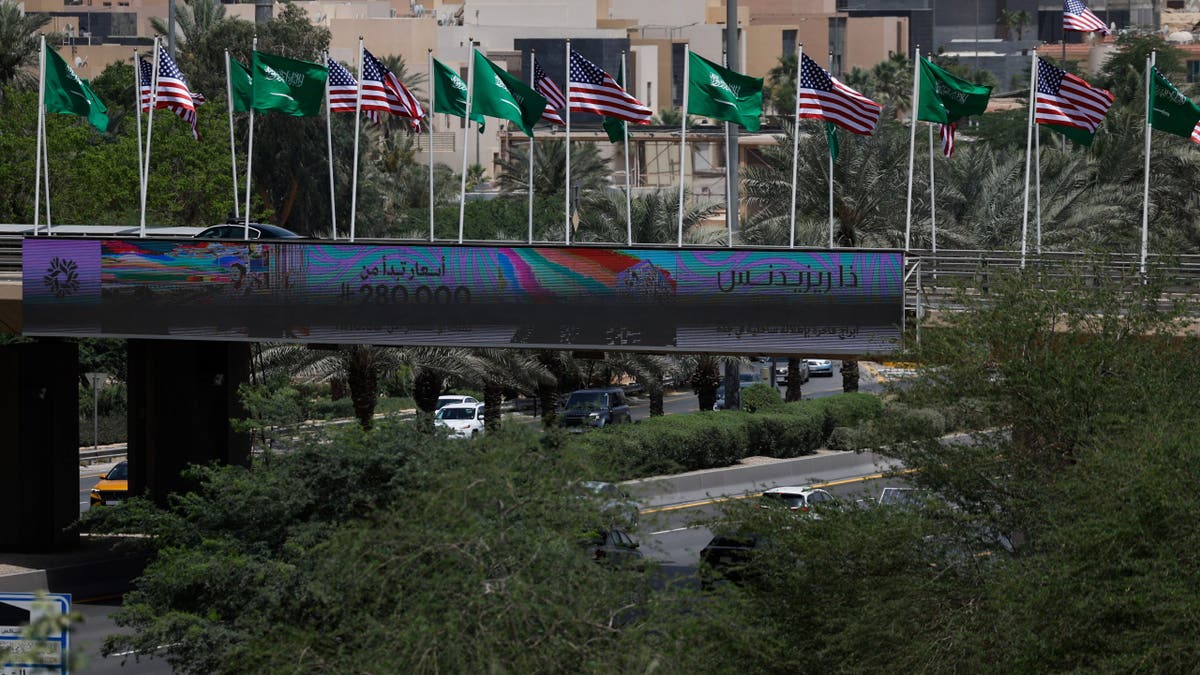
U.S. and Saudi flags flutter on the major highways of Riyadh ahead of the arrival of U.S. President Donald Trump to Riyadh, Saudi Arabia on May 12, 2025. (Hamad I Mohammed/Reuters)
Alghashian added that Saudi Arabia wants to finalize as much as possible now. “The Saudis… feel urgency to get as much as they can from the Trump administration before these deals get complicated in the next administration,” he said.
That urgency extends to nuclear cooperation, where Saudi Arabia has made clear that while China and South Korea exist as alternatives, its preference is for an American program. “Saudi Arabia really wants American nuclear cooperation because it adds more security,” he said, adding that Riyadh will not “wait forever” if conditions become overly restrictive but sees the current U.S. posture as an opening.
UN SECURITY COUNCIL BACKS TRUMP’S GAZA PEACE PLAN AFTER WALTZ CALLS TERRITORY ‘HELL ON EARTH’

Riyadh, Saudi Arabia: view over the business district along King Fahd Road, with Olaya Street on the left – skyline with skyscrapers, Olaya Towers, Al Faisaliah tower, Marriot, Hamad Tower.
Olidort said Saudi Arabia has been “very categorical” in what it expects in a changed Middle East: a defense pact and movement on Palestinian statehood. He recalled hearing a senior Saudi official say recently that “there will be no regional integration without Palestinian statehood,” a line that reflects the kingdom’s long-standing public position that recognition of Israel will only come after a credible pathway to a Palestinian state is in place.
Still, Olidort said full Saudi-Israel normalization may not be necessary at this moment for U.S. priorities to advance. He said normalization “doesn’t need to be the immediate priority” and suggested that “an upgraded deepening of cooperation, but short of full normalization,” could be possible if both sides see value in closer security integration.
TRUMP SECURES DEALS WITH 3 MIDDLE EASTERN NATIONS IN 1ST MAJOR TRIP OF 2ND TERM
That perspective is particularly relevant given the war in Gaza and Riyadh’s position on reconstruction. As Alghashian noted, Saudi Arabia has said it “will not do reconstruction unless Hamas is gone and Israel withdraws,” a stance that places the kingdom at odds with any rushed postwar plan and, in his view, leaves the region “in no man’s land.”
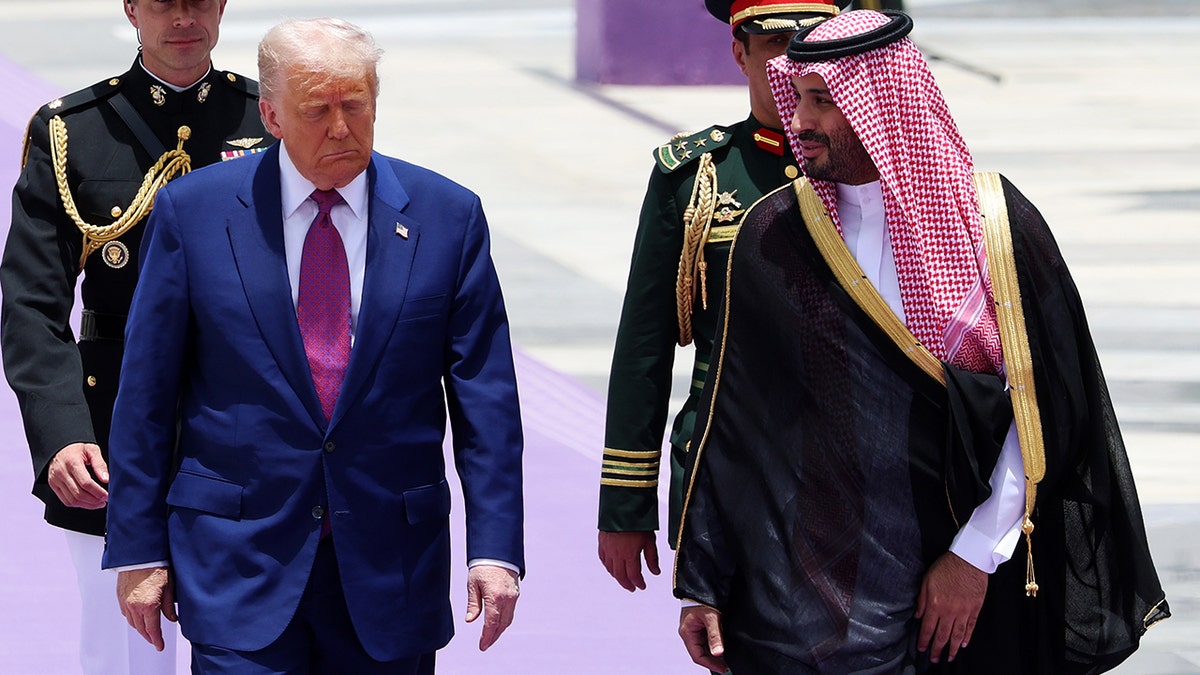
U.S. President Donald Trump walks with Saudi Crown Prince Mohammed bin Salman during an official state arrival ceremony at the Saudi Royal Court on May 13, 2025, in Riyadh, Saudi Arabia (Win McNamee/Getty Images)
Trump’s decision to approve F-35 sales to Saudi Arabia adds another layer. Saudi Arabia has formally requested up to 48 of the fifth-generation jets, making it the largest potential F-35 buyer outside NATO and the first Arab state after the United Arab Emirates to receive them. The move would test Washington’s commitment to maintaining Israel’s qualitative military edge.
Olidort, however, argued that the sale does not automatically threaten Israel’s superiority. “I don’t know that it will mean Israel losing air superiority,” he said, noting that Israel’s defense and aerospace sectors are “world-class” and that the sale could “potentially deepen collaboration between Israel and Saudi Arabia and make each of our partners… more effective.”
Beyond defense, the visit is also anchored in technology. Saudi Arabia is pushing for access to advanced American AI chips and positioning itself as a global data and energy hub.
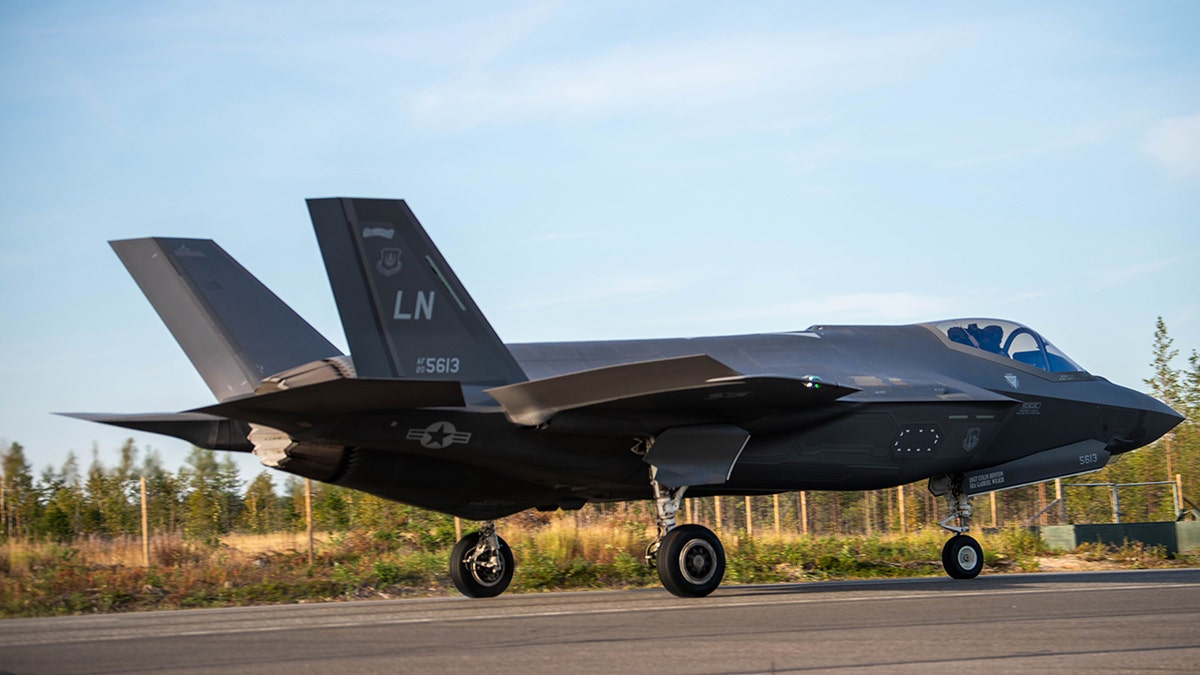
A U.S. Air Force F-35 Lightning II assigned to 48th Fighter Wing RAF, Lakenheath, U.K., lands during exercise BAANA 2024 on Hosio Highway strip, Ranua, Finland, Sept. 4, 2024. (U.S. Air Force photo by Airman 1st Class Tabatha Chapman)
CLICK HERE TO GET THE FOX NEWS APP
Olidort framed the issue bluntly, saying AI cooperation with Saudi Arabia is a strategic priority for Washington because “the United States is in ‘a race’ with China” and cautioning that “if we don’t get there, then we will be in a China-dominated AI space.” That view reflects the broader U.S. assessment that the future of artificial intelligence — from data-center capacity to semiconductor access — is inseparable from great-power competition.
Fox News’ Alec Schemmel contributed to this report.


